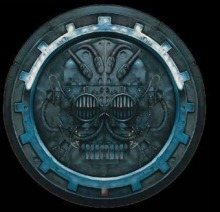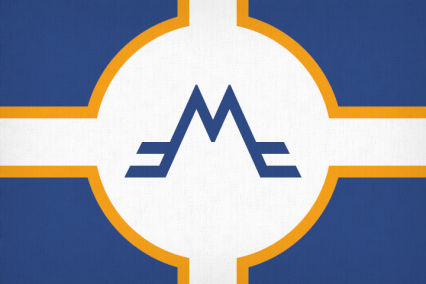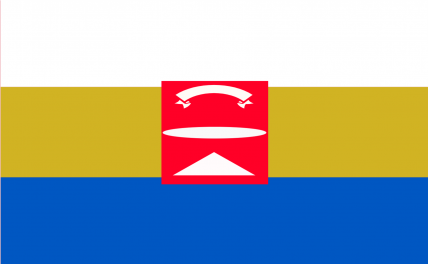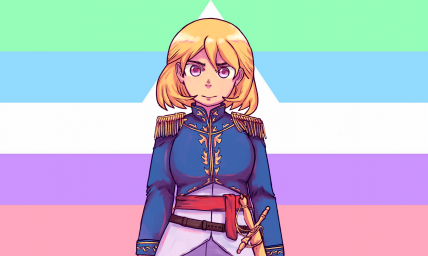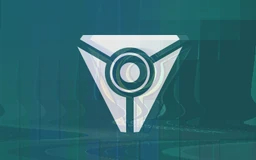Chapter II
Luoyang, Empire of China
2959 BC
The encounter with Aaron Dawson, who had been sent back nearly two decades (or sixteen years) into the past before Rain, left him in a state of shock. As Rain processed the reality of the situation, he couldn't help but speculate that while they were from the same timeline, they were not of the same era. The implications of this revelation overwhelmed him, and yet, he found himself unable to deny the possibility. Rain, being a practical and logical individual, struggled with the realization that he had been transported to ancient China. It was a stark contrast to the world he had known, with its modern conveniences and familiar surroundings. Despite his initial denial, Rain knew that he had no choice but to adapt and settle into this new reality.
As word spread within the imperial court about Rain's arrival, a mixture of awe and uncertainty swept through the palace. The courtiers, advisors, and ministers couldn't help but speculate about the young man who had appeared out of nowhere. They whispered amongst themselves, their voices filled with a respectful fear, for they had noticed a peculiar connection between Rain and their revered Emperor. It was apparent to all that Rain and the Emperor belonged to the 'same godly divine people' that set them apart from the rest of the Empire’s inhabitants, despite their different skin colors: white (the Emperor) and light brown (Rain Imperial). As they observed Rain's presence, it became clear that he possessed a profound understanding of the Emperor's language, a language no one else in the empire could comprehend. This unexpected ability further fueled the speculation surrounding Rain's origins and his purpose in their midst.
The courtiers marveled at the seamless communication between Rain and the Emperor, as if they were long-lost brothers conversing in their native tongue. Their conversations, filled with wisdom and profound insights, left those who witnessed them in awe. The courtiers pondered whether Rain's arrival was a sign, a divine intervention sent to guide the Emperor and the empire towards a new era of prosperity and harmony. Yet, amidst their awe and admiration, a sense of uncertainty lingered. The courtiers questioned what position Rain would hold within Aaron's Empire. Would he be an advisor, entrusted with shaping the empire's policies and strategies? Or would he be a guardian, protecting the Emperor from unseen dangers with his newfound knowledge and abilities? The courtiers dared not voice their questions aloud, for fear of drawing unwanted attention to themselves. Instead, they waited anxiously, hoping for the Emperor to reveal Rain's role and purpose within their midst.
As Rain navigated his way through this unfamiliar world, he couldn't help but feel the weight of Aaron’s expectations upon him. Meanwhile, the eyes of the courtiers followed his every move, their whispers trailing behind him like an invisible cloak. Rain understood the responsibility he carried, the potential impact he could have on the future of the empire. Yet, he remained uncertain of his own abilities and the path that lay before him. In the coming days, Rain would find himself embarking on a journey of self-discovery, as he sought to understand his place in this ancient land created by Aaron Dawson. The courtiers would continue to watch, their respect and fear intertwining, as they awaited the unfolding of Rain's destiny within the Empire of China.
Rain woke up the next day, the soft morning light filtering through the windows of the elegant chamber assigned to him within the palace walls. As he slowly opened his eyes, his mind still groggy with remnants of sleep, he couldn't help but hope that the past few days had been nothing more than a vivid, unsettling dream. But as his senses sharpened, he quickly realized that his surroundings were all too real. The intricate woodwork of the chamber, the ornate silk curtains swaying gently in the breeze, and the distant sounds of bustling activity outside confirmed that he was indeed in ancient China. The weight of his situation descended upon him once again, dispelling any lingering hopes of this being a mere figment of his imagination.
Rain sat up on the edge of the bed, his bare feet touching the cool, polished floor. He rubbed his temples, attempting to grasp the enormity of the situation. How had he ended up here, in a time so different from his own? And what was his purpose in this ancient land, created by Aaron Dawson? His mind raced with unanswered questions as he dressed in the traditional attire that had been provided for him. The smooth silk fabric slid over his skin, a stark reminder of the unfamiliarity of his current reality. Rain glanced at his reflection in a nearby mirror, taking in the sight of a young man who didn't belong in this era. His dark eyes held a mix of determination and uncertainty, his features displaying a blend of Filipino Visayan heritage.
Suddenly, the door to Rain's room creaked open, and a man in his early 30s stepped inside. He exuded an air of confidence and authority as he approached Rain with a polite bow. "Greetings, sir," he said, his voice carrying a slight hint of warmth. "My name is Hongyu, and I have been appointed as your personal aide by the Emperor himself."
Hongyu's attire was impeccable, adorned in the finest silk robes, elegantly embroidered with intricate patterns symbolizing his high rank. His jet-black hair was neatly tied in a traditional topknot, accentuating his sharp facial features. A sense of wisdom and experience shone through his deep-set eyes, hinting at the countless challenges he had overcome in his service to the Empire. As Rain looked up at his new aide, he couldn't help but be struck by Hongyu's presence. It was as if every movement he made was deliberate and purposeful, like a carefully choreographed dance. There was an air of mystery surrounding him, as if he held secrets that only time itself could unveil.
"With the Emperor's blessing, I am here to assist and guide you through the intricacies of our customs and traditions," Hongyu continued, his voice resonating with sincerity. "From this moment forward, your welfare and comfort will be my utmost priority."
Rain nodded, his curiosity piqued by the enigmatic aura surrounding Hongyu. He couldn't help but wonder what stories this man held within him, what wisdom he could impart about this mysterious land. Though still overwhelmed by his situation, Rain found a glimmer of hope in Hongyu's presence, knowing that he now had a guide in this unfamiliar world.
"Thank you, Hongyu," Rain finally replied, his voice tinged with gratitude. "I appreciate your assistance." His words carried a note of hesitation, betraying the flicker of doubt that danced within his mind. While Rain recognized the need for guidance in this unfamiliar world, he couldn't simply ignore the possibility that Hongyu might be nothing more than a pawn in the Emperor's elaborate game. Rain's thoughts raced as he contemplated the intentions behind Hongyu's actions. Was this man truly here to assist him, or had he been strategically placed to spy on his every move? In his assumption as the student of political arts, the Empire of China was a web of intricate politics and hidden agendas, and Rain couldn't afford to let his guard down; even if he and the Emperor belonged to the same world they once lived in.
Hongyu's demeanor remained calm and composed, his every movement seemingly deliberate and purposeful. It was as if he was acutely aware of Rain's suspicions, yet undeterred by them. His unwavering dedication to Rain's welfare only deepened the mystery surrounding him. How could someone exude such loyalty and devotion in a world where deception thrived? As Rain's gaze met Hongyu's, he saw a glimmer of understanding in the man's eyes. It was a silent acknowledgment of the doubts clouding Rain's mind, an unspoken promise that Hongyu would prove his worth. But still, Rain couldn't help but wonder if this reassurance was merely a facade, carefully crafted to earn his trust. Nevertheless, Rain knew that he had to tread cautiously. He would accept Hongyu's assistance for now, but he would keep his secrets close and his suspicions even closer. Time would reveal the true nature of this enigmatic aide, and Rain would be ready to face whatever revelations awaited him.
Rain and Hongyu walked through the bustling streets of Luoyang, the heart of the Empire of China. The air was thick with the sounds of merchants hawking their wares and the chatter of locals going about their daily lives. Rain, still grappling with the reality of being thrust into ancient China, turned to Hongyu with a curious expression on his face.
"Tell me, Hongyu," Rain began, his eyes scanning the vibrant scene around them. "How do the people here live? What is their day-to-day like under Aaron's rule?"
Hongyu's discomfort was evident when Rain called the Emperor by his name casually, shifting uneasily. He paused for a moment, collecting his thoughts before responding cautiously. "Well, Sir Rain, life in Luoyang or in the Empire is quite different from what you're accustomed to, assuming that your origins are the same as the Emperor. The people here work tirelessly, both in the fields and in the city, to support themselves and their families. They toil under the watchful eye of the Emperor, striving to meet his expectations and maintain his vision for the empire."
Rain's curiosity deepened as he listened intently. "And how does Aaron govern?" he asked, his voice filled with genuine intrigue. "What measures has he implemented to maintain control over such a vast empire?"
Hongyu glanced around, his eyes darting nervously before he replied, his voice barely above a whisper. "The Emperor’s methods are... strict, to say the least. He relies heavily on his appointed officials to enforce his laws and regulations. Loyalty and obedience are of utmost importance to him, and dissent is not taken lightly."
Rain's brow furrowed, his political mind racing with questions. "But how does he ensure that his rule is effective? How does he gain the support of the people?" Rain's inquiries were not merely born out of curiosity, but from a deeper understanding that the legitimacy of any ruler's power rested upon the support and loyalty of their subjects.
Hongyu hesitated for a moment, his expression filled with uncertainty. "I apologize, Sir Rain," he said earnestly, "but my knowledge on this matter is limited. I am but a palace man, and my understanding of governance is limited to what I have observed in my daily life."
Rain nodded understandingly, appreciating Hongyu's honesty. "That's alright, Hongyu. I appreciate your honesty." He paused for a moment, his mind buzzing with questions and possibilities. If Hongyu's knowledge was limited, then Rain would have to rely on his own instincts and resourcefulness to navigate this complex world.
As they continued their walk through the bustling streets, Rain couldn't help but be captivated by the sights and sounds that surrounded him. The vibrant colors of the market stalls, the aroma of exotic spices, and the symphony of chatter and laughter created an intoxicating atmosphere. It was a stark contrast to the rigid structure and political intrigue that he had come to associate with the Empire of China. Rain's eyes wandered to a group of children playing in the distance, their laughter echoing through the air. The carefree innocence of their joy struck a chord within him, reminding him of his own childhood back in the Philippines. He couldn't help but feel a pang of nostalgia for simpler times, before he was thrust into this convoluted world.
As Rain continued to explore the capital, he couldn't help but notice the remarkable cleanliness that permeated the city. It seemed as though every street, alleyway, and marketplace was immaculately kept, devoid of any litter or debris. Even the air felt fresher, untainted by the usual urban smog that plagued modern cities. Rain found himself in awe of the meticulous attention to cleanliness that seemed to be ingrained in the culture of this ancient era. Curiosity gnawed at him, wondering whether this level of cleanliness was a reflection of the people of this time or if it was a result of Aaron's intervention in the past. It was difficult for Rain to fathom that the capital had always been this pristine, as he had grown up in a bustling city where littered streets and pollution were the norm.
As he observed the intricate network of clay pipes supplying water to the city, Rain couldn't help but be amused by the ingenious system Aaron had created. The water, meticulously filtered and purified, flowed through the pipes, ensuring that the citizens had access to clean and safe drinking water. The thought of Aaron implementing such advanced infrastructure in a time so ancient brought a sense of admiration and wonder to Rain's mind. He marveled at the fact that Aaron's influence extended not only to the political landscape but also to the very foundations of everyday life. The capital's cleanliness and the provision of filtered water were just a few examples of the way Aaron had shaped this era. It made Rain contemplate the potential impact his own presence in the past could have on the future. Lost in thought, Rain continued his exploration, his mind buzzing with questions and observations. The juxtaposition of ancient traditions and modern advancements fascinated him, and he couldn't wait to uncover more secrets and surprises hidden within this complex world he had been thrust into.
As Rain continued his exploration of the imperial capital, his curiosity led him to a group of farmers to gain a deeper understanding of their crucial role in the Empire. With his personal aide, Hongyu, by his side, Rain approached the farmers with a mixture of intrigue and respect. Hongyu began to explain the intricate dynamics of the Empire's agricultural system, shedding light on the daily lives of these hardworking individuals. Hongyu started, "the average person in the Empire is a farmer, dedicated to the cultivation of the land and the production of food that sustains our entire society."
Rain listened intently as Hongyu elaborated on the advancements that had revolutionized agriculture in this ancient time. "To support the vast population, the Empire has implemented mass production techniques for agricultural tools made of bronze and iron. These innovations, such as the plow, seed drills, and irrigation systems, have significantly increased productivity and efficiency, allowing farmers to cultivate larger areas of land."
He gestured towards the nearby fields, where the farmers toiled diligently. "The benefits of these work-saving inventions are apparent in the expansive farms you see before you. These farmers dedicate themselves to growing a wide variety of crops, from staple grains to vegetables and fruits, ensuring a steady food supply for our people."
Rain couldn't help but feel a deep sense of appreciation for the farmers' unwavering commitment and the impact they had on the Empire's well-being. "It's remarkable to witness the fruits of their labor," Rain commented, his gaze sweeping across the lush fields. "Their hard work not only sustains the population but also contributes to the Empire's overall prosperity."
Hongyu nodded in agreement. "Indeed, sir. Their efforts are essential for our society's functioning. But it's not just their dedication to farming that sets them apart. The Empire also levies labor and military service, forming a militia from within the country. This means that many people, including farmers, are engaged in arduous work all the time, ensuring the Empire's defense and stability."
Rain's admiration for the farmers grew as he comprehended the sacrifices they made for the greater good. He realized that their unwavering determination and tireless work ethic were the backbone of the Empire, contributing to its growth and success. This newfound appreciation for the hardworking individuals who toiled in the fields ignited a desire within Rain to understand and support them further.
Rain and Hongyu stepped into a bustling restaurant, the aroma of sizzling meats and savory spices wafting through the air. The interior was adorned with vibrant red lanterns and intricate wooden carvings, giving the place a distinct ancient Chinese charm. The sound of lively chatter and clinking dishes filled the space, creating an atmosphere of warmth and excitement. As they were guided to their table by a friendly server, Rain couldn't help but notice the restaurant's unique layout. The establishment was divided into different sections, each representing a different region of China. Intrigued, Rain eagerly took in the sights and sounds of the various sections.
In the ‘Chu Province’ section, chefs skillfully tossed woks, creating a mesmerizing display of flames and culinary expertise. The aroma of stir-fried noodles and dim sum tantalized Rain's senses, making his mouth water in anticipation. Moving towards the ‘Ba Province’ section, the air grew thick with the spiciness of chili peppers and Sichuan peppercorns. The vibrant red hues of Mapo Tofu and Kung Pao Chicken dishes enticed Rain, tempting him to sample the renowned bold flavors of this region. Passing by the ‘Wu Province’ section, Rain was captivated by the elegant and delicate presentations of dishes. Intricate designs adorned plates of Braised Lion's Head Meatballs and Drunken Chicken, showcasing the artistry that went into every culinary creation. Finally, they arrived at their table in the ‘Qi Province’ section, known for its fresh seafood and hearty flavors. Rain marveled at the large tanks filled with live fish and shellfish, waiting to be transformed into mouthwatering dishes. The aroma of garlic and ginger filled the air as chefs expertly prepared dishes like Sweet and Sour Pork and Braised Sea Cucumber.
Rain and Hongyu settled into their seats, the excitement of the bustling restaurant surrounding them. They perused the extensive menu, filled with an array of tantalizing options from each region. As they placed their order, Rain couldn't help but feel grateful for this opportunity to immerse himself in the rich culinary traditions of ancient China. Little did Rain know, this dining experience would not only satisfy his taste buds but also pave the way for unexpected encounters and discoveries in his ISOT-like adventure.
Their food arrived, each dish a masterpiece of flavors and presentation. The table was filled with colorful stir-fried vegetables, fragrant soups, and succulent meats. Rain marveled at the artistry that went into each dish, the attention to detail evident in the delicate arrangement of ingredients and the harmonious blend of spices. As Rain savored each bite, he couldn't help but be transported through time and space. The flavors danced on his palate, telling stories of ancient traditions, trade routes, and cultural exchange. With every dish, Rain felt a deeper connection to the Empire and its people. As he indulged in the culinary delights, a group of musicians began to play traditional ‘Chinese’ instruments in the corner of the restaurant. The haunting melodies filled the air, transporting Rain to a different time and place. Intrigued, Rain glanced over to the musicians, captivated by their skill and passion. With gentle precision, the musicians began to play, their skilled fingers coaxing haunting melodies from their instruments. The notes danced through the air, intertwining with the atmosphere of the restaurant and weaving a tapestry of ancient traditions. Rain's attention was immediately captivated by their skill and passion. He observed their graceful movements, each musician in perfect harmony with their chosen instrument.
The melodies transported Rain to a different time and place, immersing him in the culture and history of ancient China. He closed his eyes, allowing the music to envelop him fully. In his mind's eye, he could envision the bustling streets of an ancient capital, adorned with colorful banners and filled with the sounds of life. The music whispered tales of emperors and warriors, of love and loss, and of the indomitable spirit of a vibrant civilization. As the last notes of the melody faded into the ether, Rain opened his eyes, a newfound appreciation and understanding in his gaze. The musicians bowed graciously, their performance having created a bridge between past and present. Rain couldn't help but feel a deep gratitude for this unexpected encounter, realizing that his journey through time had not only been a physical one but also a journey of the senses and the soul.
After savoring every delectable bite, Rain and Hongyu finally finished their sumptuous feast. The table was adorned with a myriad of dishes, each a masterpiece in its own right. Vibrant stir-fried vegetables, their colors bursting with freshness, were arranged meticulously alongside succulent strips of marinated meat. Fragrant soups, their steam rising gracefully, promised a comforting warmth with every spoonful. Rain's taste buds had been tantalized by the intricate flavors, a harmonious blend of aromatic spices and delicate ingredients. The culinary artistry, evident in the careful arrangement and presentation of each dish, was a testament to the skilled chefs who had prepared the meal.
As Rain and Hongyu stepped out of the restaurant, Rain couldn't help but feel a sense of confusion lingering in his mind. He turned to his personal aide and asked, "Hongyu, I can't help but wonder, why didn't you pay the man? Shouldn't we settle the cost of this incredible meal?"
Hongyu looked at Rain with a gentle smile, understanding his confusion. "In the Empire, food is not sold in the traditional sense, sir Rain." he explained. "Loaning resources or using vouchers with interest is considered a capital offense, so all citizens are provided with the basic necessities without the need for payment."
Rain's brows furrowed as he struggled to grasp this concept. "But shouldn't food be treated as a valuable commodity? How can it be freely given without any exchange?"
Hongyu nodded, understanding Rain's viewpoint. "You see, sir Rain, here in the Empire, the value of food is not measured in monetary terms. The currency is primarily used to purchase luxury goods such as nice soap and better fabrics. It is a way for individuals to enhance their quality of life beyond the essentials."
He continued, "Instead, our society operates on a system where paying extra taxes is rewarded with these luxury goods. It's a way for the state to support farmers and ensure a stable food supply. The surplus grain is purchased by the government, and in return, the farmers receive these additional rewards."
Rain's confusion began to dissipate as he delved deeper into his understanding of this unique society. It was a system unlike anything he had ever encountered before. Here in Aaron’s China, the government ensured the provision of basic necessities to all citizens, eliminating the need for monetary exchange. This concept seemed almost utopian to Rain, who had grown up in a world driven by capitalism. As he pondered the intricacies of this society, Rain couldn't help but appreciate the underlying philosophy behind it. The government's focus was not solely on the accumulation of wealth but on the well-being of its people. The notion of freely giving food without any exchange was a testament to their commitment to ensuring that no citizen would ever go hungry. It was a far cry from the individualistic and profit-driven world he had known. And as Rain contemplated the implications of this unique system, he couldn't help but entertain the idea of engaging in a spirited debate with Aaron, the self-proclaimed Emperor of this China he created. He wondered if Aaron would be open to discussing the merits and challenges of this society, and if so, what new perspectives might emerge from their conversation.
Rain knew that he still had much to learn about this place, but he was eager to explore further and embrace the unexpected discoveries that awaited him.
Rain's thoughts drifted back to Xiang, where he had encountered Xiaosu, the captivating woman with an enchanting smile. He couldn't shake the connection he felt with her from the moment their eyes met. The memory of their brief but meaningful interaction played on repeat in his mind, leaving him yearning for her presence once again. Not only did Rain miss Xiaosu, but he also found himself thinking about the merchant named Yee Han. Yee Han saved him after he got summoned to this place. Rain appreciated his guidance and the invaluable knowledge he had shared. As he pondered their encounters, Rain couldn't help but wonder how they were faring without him.
However, Rain's current predicament tied him to the capital, leaving him uncertain of his fate. He longed to explore beyond the city walls and venture out into the unknown, but the fear of the consequences held him back. It was a frustrating reality for Rain, knowing that his path was intertwined with Aaron's, and only through him could he find the answers he sought. The realization that he needed Aaron's assistance weighed heavily on Rain's mind. If he truly wanted to help Aaron and contribute to his Empire he found himself in, Rain understood that he needed to learn how to read and write the script to ensure he gets to navigate this foreign world but would also allow him to immerse himself fully in the Empire’s affairs so at least he’d be useful and making his bachelor’s degree and part-time political experience not go to waste.





